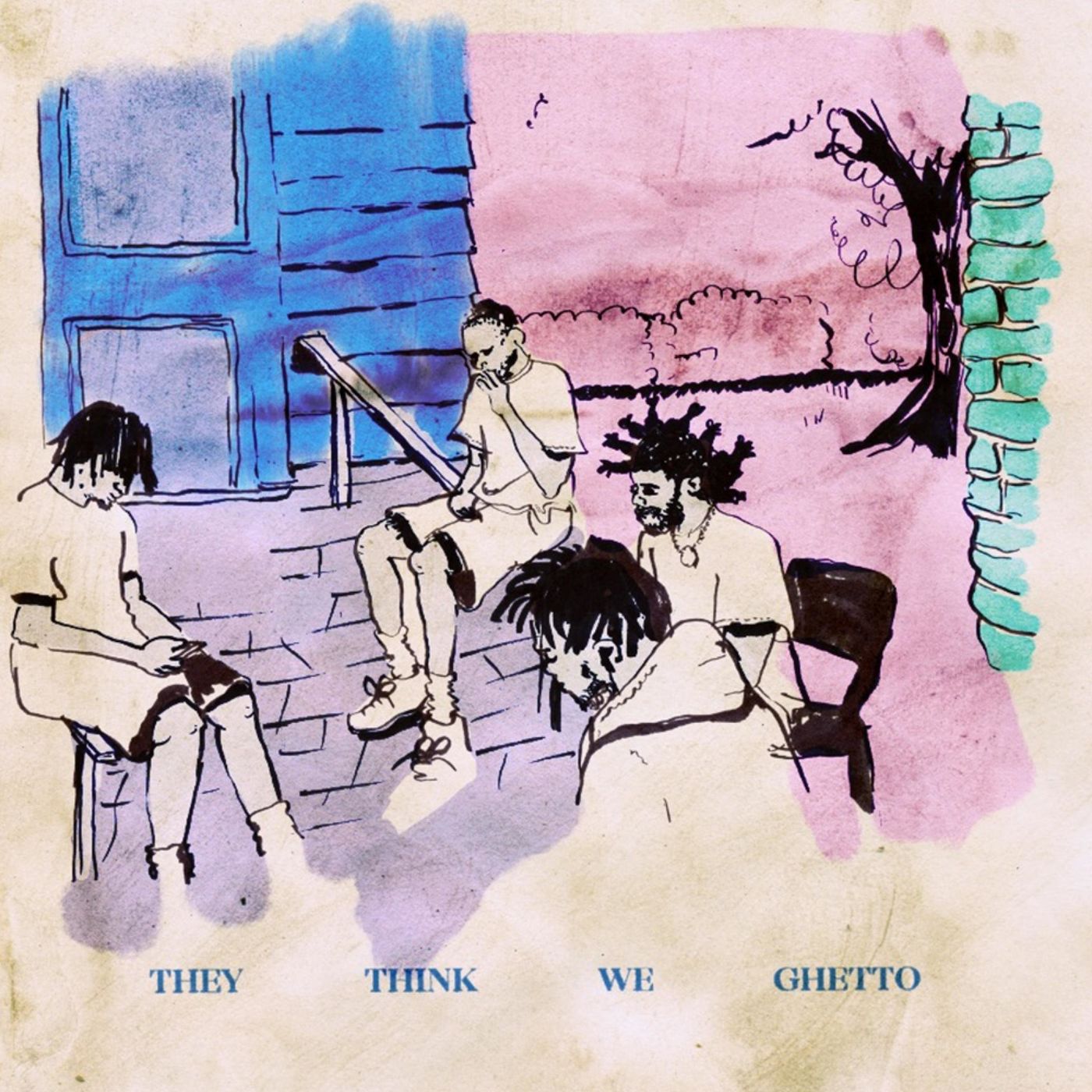Somehow, Baton Rouge rapper Quadry is still flying under the radar. Despite having released strong projects since 2016’s timely America, Me, that spark just hasn’t quite lit a fire just yet. You can practically feel him pacing on his latest album, They Think We Ghetto: if this isn’t the one to do it, well, it should be.
He’s well aware of it, as he paints on “Recognize Myself”: “My name is Quadry, I’m the n***a that you know / well, maybe not, they say my streams moving slow.” It’s just that sort of honesty that’s both refreshing and bracing. For a genre replete with braggadocio and chest thumping about just how much you have, typically before you have it (Drake said it himself: “I know I exaggerated things, now I got it like that”), Quadry’s style is so down to Earth he may as well be rapping from the cracked sidewalk.
That immediacy and relatability are among They Think We Ghetto’s greatest strengths. The album exists between two poles, and they represent a reality all too familiar for much of America’s youth: on the one hand daydreaming of the potential future all but promised by a career in rhyming, and, on the other, fears of not surviving to even possibly reap those kinds of rewards. This duality is ever present here, often presented within a breath of each other. “I’m Goin’” finds Quadry delving into pleasant fantasy, imagining horses in the backyard and luxury cars in the driveway, while the very next song “Baby Boy” is frantic, finding our narrator reflecting on a friend who was shot, scared to so much as go to the local Texaco to pick up some mixtapes because, “they done murdered Mr. Sterling.”
The association bears particular weight coming from Quadry: he grew up in the same neighborhood as Alton Sterling, with his debut project happening to arrive one week after the man’s tragic murder. Even years removed, it makes the fear that clouds They Think We Ghetto all too real, even uncomfortable for those of us privileged enough to be removed from such constant danger.
Musically, the album is something of an anomaly. It’s a blend of the inevitable, omnipresent Atlanta groove (particularly on the soulful, foot-tapping “I Can’t Throw No Stones”, which sees a memorable turn from recent Shady Records signee and Atlanta native Grip), and the unique Baton Rouge sound (not entirely removed from Kevin Gates or Boosie Badazz in their murkier, Southern-fried moments), but artfully incorporated with the more boisterous aspects of New Orleans hip hop. This is something Quadry views as essential, explaining that when Katrina forced denizens of the latter city into his home during his youth, he became immediately enamored with the likes of Lil Wayne and Master P.
Conceptually, They Think We Ghetto shares much more in common with the latter legend. However famous the No Limit leader is for his peerless hustle, for those familiar with his actual music, his bruised, mournful sense of pride is immediately identifiable in Quadry. Much like his idol, Quadry may well have nearly drowned in the darker corner of the life he was born into, but he’s never lost his sense of hope. It’s that unblemished ambition that colors the album, with the rapper seeming to drag himself, forcefully, towards the future he still hopes for. He says it best himself, on the grim, embattled album closer “You Can Pick Up?”: “I’m still waiting on my change.” He has a long way to go, but, if you let him tell it, there’s no time to rest.

